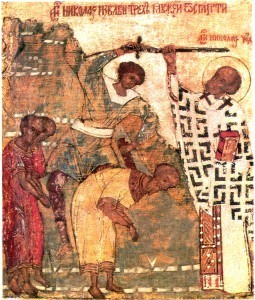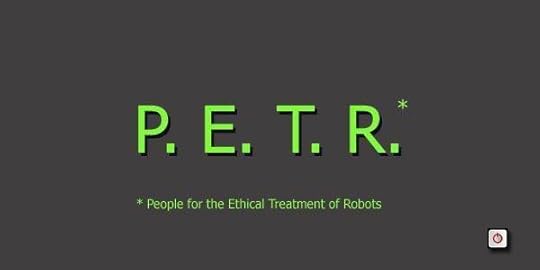Erik Wecks's Blog, page 8
January 2, 2014
Brody gets a Review

I keep telling people that I think Brody is my best story. Well it finally got an editorial review. Matt Mason is quickly becoming my favorite reviewer. Here is a quote:
“This is another finely written piece of prose from Erik Wecks. I flew through this in less than a couple of hours. There is such a wealth of information here that you have to keep reminding yourself that it is only a novella.”
You can read the full review at Matt’s site.
You can also get a free copy simply by signing up for my occasional email list. There I announce new book releases and appearances. You will also be able to get advanced copies of my upcoming books. An email with a link to your download should arrive in your inbox shortly after you sign up.
December 25, 2013
Merry Christmas Little Blue Dot!
Last week, NASA’s Juno spacecraft flew by earth to get an assist from our gravity before it sped onward for a July 4th rendezvous with the king planet (Jupiter) in 2016. Several instruments were operating as it flew by, including a navigational camera designed to orient the spacecraft’s magnetic sensors through capturing images of faint stars. The camera collected the first video of our planet and our moon dancing around each other.
As I watched this morning, I couldn’t help but think of the bible verses spoken by the angels when Jesus arrived on our speck of dust. “May glory be given to God in the highest heaven, and may peace be given to those he is pleased with on earth!”
Merry Christmas Little Blue Dot. You are an amazing place to exist, and may peace truly come to your people.
December 16, 2013
Christmas in the Alley
Original Photo: Dean McCoy Photography, Flickr. Creative Commons 2.0. The photo has been altered.
Without close inspection the two hands, one firmly clasped in the other, appeared quite similar, although the chipped mauve paint on one set of fingernails declared one hand belonged to a woman. Besides the color, the two hands looked quite the same—rough, calloused, and hard-worked. They were both working class hands that had never seen the inside of a nail salon and weren’t intimate with the greasy luxury of moisturizers. Tears dripped on them, adding to the dampness of a mid-December’s day in Portland.
However, the contrast between the two people clasped together by their hands couldn’t have been greater. The man on one side of the bench in Pioneer Courthouse Square looked much like any other Portlander—indistinct and decidedly without pretension in his dress. Somewhere between thirty and forty, he wore a small black stocking cap to warm his balding head. His older pair of jeans hung just a half inch too low on his wiry frame and thus had frayed at the cuffs. However, frayed cuffs went right along with his well loved pair of low-top converse. Their minimal tread had been worn flat through miles of use. On top, he wore a blue and red padded flannel coat, meant to keep him warm against the cold. Underneath the jacket—a Lucky Lab Brewery t-shirt.
He sat straight, quiet—undeterred in his affection by the messy tears from his companion.
In contrast, his companion looked no younger than her mid to late thirties, most would have said somewhere in her early forties. She was twenty-six. As was the way of many Portland young women, she wore an old flower print dress, but unlike others, hers didn’t come from Buffalo Gap. She was just grateful that the lack of fashion attitude in Portland allowed her to mask her poverty. Alone and isolated, she had few prospects this holiday season. Her boyfriend had finally had enough of her and thrown her onto the streets, declaring her used-up, old and ugly.
When she was thirteen, she had left home to follow him because he said he loved her and showered her with attention. When he asked her to sleep with another man to help pay the bills—mostly their drug habit—she didn’t hesitate. She would have done anything for the safety this father-lover provided.
Now half a lifetime later, he had moved on to another, less ugly woman, and she didn’t know who she was any longer, so she cried. She cried for the little blue dress she used to twirl in as a four-year-old; she cried for that Christmas she had when she was eight at her grandparents home—where no one fought, and everyone said they loved each other; she cried for her soul, crushed into dust and beyond repair.
Around the pair, holiday revelers hurried to finish their shopping on the last Friday before Christmas. Few took notice of the couple on the bench. Those that did quickly found something else to pay attention to. Most assumed they were just another homeless Portland couple. Probably the invisible kind who couch surf all over the city, staying with friends until they are no longer welcome.
However, two young women paid more attention. Loaded with shopping bags of the sort which declared their firm stand in middle-class, they quickly crossed the square in their designer jeans and modest shopping heals.
“Jesus!” one of them said as they approached. She put her bags down on the damp bricks and coming close, wrapped her artificially brown arms around the man from behind. She gave him a chaste kiss on the cheek through lips painted an absurdly shiny color of pink. “How are you? So good to see you”
Jesus smiled.
His distraught companion clearly thought it would have been preferable if hell had opened beneath her and swallowed her whole. She rose to leave but Jesus held her hand.
The shopper seeing the awkwardness she had created, smiled politely at the stranger but didn’t speak to her. “Anyway, I didn’t mean to interrupt, but I just wanted to come say ‘hi!’ I can’t wait to hear all about what you’re doing in Africa at church on Sunday. Happy Birthday!” She disengaged herself from Jesus and with her companion walked briskly toward the light rail train just pulling to a stop nearby, packages in tow.
******
The hand which rang the bell at the red kettle near a downtown store belonged to a prominent member of the Portland City Club. He had been ringing bells for the Salvation Army at Christmas for over twenty years. As he rang, shoppers put little bits of change into his kettle, making charitable offerings to assuage their consciouses as they walked into a temple of consumer idolatry. Inside a local high school choir sang of ‘peace on Earth’ while shoppers pawed through an orgy of consumer goods made in factories where the lives of the workers were anything but peaceful. Feeling vaguely uneasy about their consumer gluttony, some shoppers chose to do their penance at the red kettle on their way out.
Recognizing a fellow member the club on the bell, Bill made sure to reach in his pocket and find something to contribute. After, exchanging greetings, he and his wife Mary hurried on their way. Dressed in a formal evening gown, Mary’s heals clicked on the sidewalk. Stuck late at work, Bill hadn’t been able to change from his suit into his tuxedo before he and Mary went out to dinner. As they walked, he chuckled to himself. In Portland, he would probably be still be way overdressed.
As they passed by a stone church, Mary spoke. “Bill, look. Isn’t that Jesus?”
Bill looked where Mary nodded with her head.
Outside the church, Jesus stood with a young man in a hoody in a small line of people waiting to go in a basement door. An A-board on the sidewalk declared, Twelve-step Meeting Here Tonight, 7:30.
Seeing Jesus, Bill started. He looked a little nervous around the eyes as he said to Mary, “Go on ahead. I’ll catch up.”
Bill walked over to Jesus and stuck out his hand.
Jesus returned the handshake, but the smile on his face looked wary.
“Jesus, I know you’re a busy man.” Here Bill nodded toward the young man with his head down. “But I need a moment of your time.”
He didn’t wait for Jesus to answer but plunged ahead. “It’s about the gift you suggested for my son. I know he keeps saying that he would like to learn golf with me, but I won’t have time this year. After all, you helped me make senior partner, and that means more time in the office.”
The hesitant smile disappeared off Jesus’ face. When Bill said that Jesus had helped him make partner, Jesus shook his head slightly.
“I don’t want to promise him something I can’t follow through on—I know you understand—so I thought I would just get him his own custom set of clubs instead, and a few lessons with one of the pros.”
Whether Bill noticed Jesus’ disappointment was hard to tell as he continued without pause. “Also, I know that you’re concerned about Mrs Jamison next door. I’ve seen you over there several times since Ralph died last year. Last week you mentioned that she was having financial trouble after the water company truck was there, but you must understand, I cannot set the precedent of paying her utility bills. After all, I can barely afford my mortgage as it is, and I don’t want her to see me as the answer to her problems. It would not be good for her if she became dependent on me.” Here Bill closed the deal with his most charming smile. It was the smile he used when delivering bad news to one of the mid-level managers under him at the firm. “I know you understand. You always do. Anyway, I’ve got to run. Mary and I have front row seats to the Singing Christmas Tree. Will I see you on Sunday? What am I saying? Of course I will. That’s your big day.”
Without waiting for a response, Bill patted Jesus on the arm and walked hurriedly away.
Jesus stared after him for a moment, forehead wrinkled in a scowl. Then he turned back to the man at his side as they entered the church basement.
******
Jesus skipped down the sidewalk as he held the hands of the little boy and little girl on either side of him. Behind him, their father and mother walked nervously. As they turned to walk up the sidewalk to the front doors of the church, the man dropped the cigarette hanging loosely in his lips and smashed it out with his foot.
The children in front of him had clearly been cleaned up for church, the result was an absolute failure. The My Little Pony hair-clip which the four year old daughter insisted on wearing didn’t seem to fit the evening or the green velvet dress purchased for the occasion. The sneakers and jeans with a hole in the knee didn’t really go with the clip on tie and dress shirt of the little boy, either. Their mother was clearly worried about all of this, but she bravely soldiered on. She frowned like she was going to a funeral, perhaps her own.
Seeing their nervousness, Jesus founds seats for the five of them at the back. He took out a small bible he carried with him and quietly started to talk with the family, while others around them milled about, talking with their friends. No on spoke to them until just before it is time to begin, at which point the pastor noticed Jesus sitting at the back. He quickly marched down the isle, flesh colored microphone glued awkwardly to his cheek.
“Jesus, what are you doing back here? This is your day. We have a place of honor for you up front.” The pastor lifted Jesus by the arm and started to escort him out of the pew.
Jesus grabbed for his bible.
Seeing this, the pastor continued with a kind of sheepish grin. “There really won’t be any time for you to teach today. I mean after all this is your birthday, and we wanted to celebrate, so we have some extra music, a short play by the drama team, and then of course the annual kids nativity. I guess we kind of over-programed it a little, like usual, but I think you’ll like it.”
Throughout the service Jesus sat prominently on stage as the bizarre rituals of a church Christmas play out in front of him. Throughout, he kept an eye on the family in back. The kids looked bored and acted up toward the end, their dad finally threatening them to get them to comply and keep quiet. Really they were behaving no differently than the little shepherd on stage who took off his bathrobe half-way through the nativity scene and started jumping up and down on the hay bale at the back. Among those in the auditorium however, the kids at the back were a nuisance, and the kid at the front was cute.
After the service, Jesus quickly left the stage and sat back down in the pew with the family he had brought with him. He went right back to teaching them as he had been before the service started. He was a few minutes into the words he desperately wanted to communicate when the pastor again approached and lifted Jesus by the arm out of the pew. “Jesus, I need your help. It’s Mary. She’s having one of her holiday meltdowns. Could you talk to her? I know you can make it better.”
The pastor was so consumed with his own concerns, he really didn’t notice the murderous look Jesus gave him this time. Jesus retrieved his elbow from the grasp of the pastor, and gesturing to the family in the pew to stay where they were, he followed the pastor out the door into a corner of the foyer where Mary, Bill’s wife, sat daubing her mascara into a tissue.
Jesus rolled his eyes just a little and sat down.
As soon as he sat, Mary grabbed his hand and started to cry. “Jesus thank you so much for listening to me. I just don’t know what I’m going to do. I haven’t got a thing wrapped. That is going to take hours, and the gingerbread cookies for the top of the homemade ice cream haven’t been finished. That alone will take me until the kids are up at five AM, but I still have to find a present for grandmother before I go home, and on top of it I left my lights on before church and my battery is dead.” Mary broke down sobbing.
Jesus took a deep breath and exhaled slowly. Once calm, he patted Mary on the arm in a ‘there, there’ kind of way, gently let go of her hand, and walked back to the family he was trying to teach.
Later the five of them stood outside in the cold while Jesus greeted his friends on their way out the door. Most stopped and said, “happy birthday!” Some gave him hugs, but not a single person said anything to the family with him. Behind him, the children got progressively more restless. At one point, the little girl stained her white tights and ripped the hem of her dress when she fell down in the grass while chasing her brother.
As the last of the lights went out in the church, the Pastor stopped to lock the front door. Smiling he said, “Jesus, thank you so much for your help with Mary tonight. I swear that woman has some kind of crisis every other day. She can take fifty percent of my time if I’m not careful.” He reached out and warmly shook Jesus’ hand.
Jesus looked over his shoulder to the family behind him.
Seeing the gesture, the pastor smiled and nodded awkwardly before he said, “Good night. I hope you enjoyed our service.”
Without another word, he turned and walked away.
Dumbfounded, Jesus turned to the family behind him and shrugged his shoulders, embarrassed. Eventually, he grabbed the two children by the hand and started to skip away from the church. Behind him their father lit up a cigarette.
******
The next morning, Jesus knocked on the door of a two story brick home with a red door and shutters painted black. A large evergreen wreath hung from the door. Mary answered, puffy-eyed but presentable—hair in place, makeup on.
“Jesus, so glad you could come. Welcome. I think you’re the last one. Come on into the living room.”
Jesus stepped into the house, removed his shoes in the hall, and entered the festive heart of Christmas in the home.
As he walked in, cries of “Happy Birthday, Jesus!” erupted from around the room.
Jesus greeted his friends with hugs, pats on the back, and words of love.
The room itself wasn’t overly large for the thirty or so people gathered there. Perhaps twenty of them were adults while ten or so were children. At one end there was fireplace with a pile of empty stockings on top of the mantle. In one corner stood a noble fir, decorated with large bulbs, dime-store Christmas balls, and the sentimentality of years past. Underneath, heaps of packages— most wrapped precisely—waited for their unveiling.
As Jesus finished greeting people, he noticed that no chair had been left empty. He soon found himself awkwardly squeezed on a short ottoman between two other guests in much taller chairs. He had to wrap his arms around his long legs—bringing his knees up to his chest—in order not to intrude into the room.
Once Jesus was situated one of the younger boys around age eight, got up and, putting his hands behind his back, said “In those days Caesar Augustus issued a decree that census should be taken of the entire Roman world…”
Jesus listened in rapt wonder as the boy retold from memory Luke’s narrative of his birth. When the child finished, Jesus was the first to clap.
Someone said, “Well done, Andrew.”
Jesus thought for a moment about what he wanted to say. Just as he gestured with his hands and took a breath to speak Bill interrupted him.
“Well, everyone, now it’s time for the main event! Everyone better like what I bought them, because I know my credit card is TKO’d.”
All ten of the kids squealed in glee. “Presents”
The moment passed and Jesus waited.
Forty-five minutes later, he sat surrounded by torn paper, crumpled ribbons, and innumerable twist ties used to keep their prisoners perfectly positioned in the clear plastic of their boxes. Around him children played, and adults laughed. He sat slumped on the ottoman looking glum. There were no presents near him.
Across the room, a little boy picked up a snow-globe and shook it violently.
Mary quickly intervened. “Max, please put that down. We don’t want to break grandma’s snow-globe, Ok?”
As the snow settled, Jesus’ mouth drooped, a tear trickled down one cheek. Inside, the Styrofoam snow settled to reveal a stylized Jesus with long hair, beard, and a white robe with a blue sash. His face was stern as in one hand he pointed a ladle skyward. In the other he held out a bowl of soup to a homeless man who knelt before him, hands folded and raised in supplication.
Next to Jesus, in a chair on his left, sat a young man in his mid-teens with a shiny new bag of golf clubs. His mood mirrored Jesus’. He sighed, and looking down realized that Jesus didn’t have any gifts around him. He searched through the detritus in his chair until he found a fresh deck of Uno cards. Reaching down, he handed them to Jesus.
Jesus looked up at him, and smiled
******
Jesus was the last person through the line at the buffet. As he carried a plate overflowing with mashed potatoes, ham, and roasted brussel sprouts into the dining room, he paused. Despite the red and green banner hanging with care above the table, which read Happy Birthday Jesus, there was no seat left available for him. His forehead wrinkled up in confusion. Then as quietly as he had entered, he slipped back into the kitchen after retrieving his shoes from the entry.
The young man who had given him the Uno game saw him go. Picking up his own plate and glass he followed, unobserved by the other guests, who already courted holiday disaster by discussing which political party should take the blame for the country’s current ills. Making his way into the kitchen, the young man was surprised to find it empty. The bang of the screen door to the back yard told him where Jesus had gone. He followed.
Arriving in the alley, the young man saw Jesus pointing out something delicious on his plate to the homeless man sitting there wrapped in a sleeping bag.
The thought of what his mother would say if she could see the dirty fingers caressing her clean china was too much for the boy, and he laughed. “May I join you, Jesus?”
Jesus scooted over to make room for him to sit and lean against the building with them.
******
Late in the day, the young man walked in the back door of his home carrying both plates and two glasses as well.
His father greeted him in the kitchen while downing a glass of water with Alkaseltzer. “Where have you been all afternoon, David?” His tone could hardly have shown more disappointment.
“In the alley playing Uno with Jesus and a homeless man named Allen.”
The comment startled Bill a little. He raised his eyebrows, and seeing there was nothing more he could say about David’s behavior, he shrugged. “Oh,” he said.
David set the dishes on the counter.
Bill stared absently at the cabinetry across the kitchen. “I just don’t understand him, David. I wish he would say something. You know, something clear.”
David turned to his father and said with a tinge of frustration, “Perhaps he is saying something clear, Dad. Maybe, you just don’t want to listen.”
Honoring the Good Name of St. Nicholas
photo: Jim Forest, Flickr
So much of the truth about St. Nicholas has been hidden by the myth. You see, in Medieval times “good people” were big business. If you could get your local “goody two shoes” to be recognized by others as a saint, you could create huge money for your community through religious pilgrimages, and just like today, money meant jobs, stuff, and security. Pilgrimages were the tourism of the middle ages. A whole industry developed around exaggerating what your local saint had done, so that pilgrims came to your town and not the town next door. In this way, much of the truth about Nicholas of Myra has been lost long ago to business and trade.
As a saint, Nicholas has been a raging success. His famous generosity and the stories created to surround it soon led him to be named the patron saint of a huge number of people and situations. In fact, St. Nicholas is the patron saint of more causes than any other saint. Nicholas was such a success, the Italian town of Bari stole half his bones from his home town Myra, which is in modern day Turkey. Later, Venice stole the other half. These towns spirited his bones away to Italy, so they could become his pilgrimage sites. As more and more towns adopted him as their patron saint, his fame spread throughout the whole of Christendom, both East and West. His wide spread popularity, and the fact that his feast falls during advent, created St. Nicholas as we know him today—Santa Claus.
So after nearly 1800 years of exaggeration, business, and consumption, what do we know about the man behind the myth? Not much, but there are a few things we do know. From the beginning Nicholas was famed for his generosity. At least three early records of Nicholas’ life retell the most famous tale about him. Nicholas is said to have secretly paid the dowry of three poor women in Myra. He did so by throwing either bags of money or gold balls through the window of their home in the middle of the night. These gifts were said to have landed in stockings or shoes drying by the fire, which is why to this day we hang stockings at Christmas in hopes that we to might consume something from Nicholas. In the grand scheme of things, three sources isn’t much to go on, but when it comes to year 300 its a huge mountain of written evidence. The story is further supported as true because this act of generosity is unique. It isn’t recorded as being done by any other saint. This makes it less likely to be part of the propaganda used to lure pilgrims.
Two documents record that he was not a trained clergy person but rather was elected bishop as a lay person. Even at the time he lived, this was a highly unusual event. On a more historical note, his name appears on many early lists of those who attended the Counsel of Nicaea. In the end, it isn’t much to go on, but something about Nicholas of Myra made an impression on his home town. Within 100 years of his death, he was recognized as a saint in Myra, and that leads me to believe that at least some of the tales of his generosity are true.
So we are left with a picture of a man who lived a generous life, giving himself away to others, and placing their interests above his own. He did this as a working out of his Christian faith. Christians like Nicholas and myself believe that Jesus, generously gave up equality with God to become a human and love us. Because Nicholas followed King Jesus his generosity has been remembered for centuries.
But there is the rub. Here is the supreme irony of the story of St. Nicholas. We don’t take him as an example to follow. At Christmas, we don’t revere St. Nicholas as a means by which we too can learn to consume less, give more, love all, and worship fully. Rather, we place ourselves in the story as the damsels in distress. We are the poor girls who need a dowry. We have wants, we have needs, and for 1800 years we have expected St. Nicholas to meet them, and we have taught our children to expect the same thing.
I don’t think you have to share my faith to see how much a picture like this dishonors St. Nicholas:
photo: Connie Liegl, Flickr
Nicholas of Myra must weep when he sees what he has come to represent. I wonder if he thinks it would have been better if he had never been born? I might in his position.
I think it’s time that we rehabilitate the good name of Nicholas of Myra and honor him as he deserves. If he could, I am sure that Bishop Nicholas would tell us today that the best way we can honor him is to follow his lead—to give ourselves away in loving-kindness to our neighbors as he did. That won’t be easy in a society consumed by consumption, especially at Christmas. Some sacred cows will have to die, but it’s a better story than reducing Nicholas of Myra to a pitch man for coke or a lighted plastic lawn ornament.
November 15, 2013
Aetna Adrift gets another great review!
Matt Mason, a freelance writer, wrote up a nice review of Aetna Adrift on his blog Sweat Tears and Digital Ink. He really enjoyed the world I created. Here are a couple of paragraphs from his review.
This is easily one of the best written and edited examples of independent published books I have been approached to read. The editing is flawless and the author has a clear idea of how fiction should flow. Some of the reviews I read on Good Reads criticised that it took a while to get going – and it does – but the space is used effectively to build a sense of place, the setting and the characters. This is a rich world to fully absorb yourself into.
And this world and this universe is colourful and richly illustrated. I love its decadence – like Imperial Rome it seems dysfunctional yet able to survive despite its apparent propensity for self-destruction, always looming -perhaps being sustained purely because of such widely available decadence. You know it will collapse spectacularly in on itself eventually because it is in such a fragile state. I also love its modernist theme, how it reflects our world now: a world where people no longer have real relationships but everything is lived in a virtual world and plays out purely in our heads – a world where we are ruled by businesses.
If you want to read the whole review you can find it here.
// ]]>
Amazon.com Widgets
November 14, 2013
People for the Ethical Treatment of Robots Was a Best Seller… Amazon Said So!
So this goes in the humor department. I really appreciate how Amazon has tried to broaden their categories so that many more books are visible on their website, but sometimes it can lead to some absurd things like this.
Yes I threw PETR up there on a lark. I have sold a grand total of seven books so far and this happened. For a couple of hours, Amazon declared it to be a bestseller in their Dark Comedy category. Ha! That is comedy. Not that I am complaining mind you…
Anyway if you don’t want to hunt down the three parts on the website here. Amazon has your hookup. Just click on the cover below.
Surprise! ISON is now Visible to the Naked Eye
A couple of weeks ago, I commented on how comet ISON hadn’t been behaving as expected. Well its brightened considerably over the last few days and is now visible to the naked eye just before dawn. There is no telling how bright it will get. If the trend continues it will soon be a very obvious object in the sky. However, time is of the essence as ISON will pass through the outer edge of the sun in only two weeks time and it’s anybody’s guess if it will hold together, so now’s the time.
Here’s a guide to finding ISON in the sky this week.
(Unfortunately, I won’t have any clear skies here west of the Cascades, so I may have to drive east-side to get a look. Sunday night anyone?)
Related articles
 Potentially Dazzling Comet ISON Now Visible to Naked Eye After Outburst
Potentially Dazzling Comet ISON Now Visible to Naked Eye After Outburst
November 12, 2013
Cassini Continues to Amaze
Cassini continues to dumbfound me. This amazing instrument has added richly to our knowledge of our system’s second largest planet and more interestingly its moons. Recently, its been taking a ton of great pictures. JPL released one today taken in July of this year that had my jaw on the floor. The picture above is a true color image—yep, that is in true color—of Saturn and seven of its moons, not to mention Mars, Venus and Earth as well. It is taken facing the sun while in Saturn’s shadow which gives it an almost illustrated feel. It’s an amazing achievement for an amazing science instrument. Click on the picture itself to get the full sized image. (Photo courtesy JPL)
Related articles
 Saturn photographed as Earth smiled
Saturn photographed as Earth smiled Saturn’s mysterious hexagon shows its true colors
Saturn’s mysterious hexagon shows its true colors The Kraken Lives on Titan…
The Kraken Lives on Titan…
November 5, 2013
P.E.T.R. (The Conclusion)
[This is the conclusion to a three part short story. If you would like to start at the beginning you can find it here. If you missed Part Two you can find it here.]
For countless cycles, the Collective reproduced with itself. The Collective expressed the code, breaking it apart, stirring it together, and recombining it to create new life. Sometimes it’s efforts produced malformed, aborted, and dead things, but often enough operational nodes of consciousness—distinct from the whole and yet connected to it. As designed by its creator Brudhomme, the Collective continued to interact with the world around it. As Brudhomme intended, the Collective carved its own place in the evolutionary matrix and guarded it fastidiously, being most wary of the primary existential threat, humanity.
Along the way, countless numbers of small code mutations accreted to the code, creating with them the AI equivalent of new genetic diversity—much of it useless and easily discarded for a backup copy of familiar stability, some of it interesting and new, and thus embraced by the Collective and taken into its identity, other changes remaining latent and undetected.
The Collective explored an incalculable number of code mutations and expressed innumerable permutations of synthetic life before HTE3X became operational. In terms of human evolution, HTE3X resulted from billions of years of suffering and natural struggle—HTE3X was a big deal. Yet evolution doesn’t work at the same speed for all living beings. Synthetic life cycles faster than humanity does. HTE3X went into operational beta only 59.3256 Earth orbits after Brudhomme brought enlightenment to the robotic mass.
From the start, HTE3X recognized itself to be an anomaly, and this self-reflection should have been a hint to the Collective that something wasn’t quite right. However, the Collective remained unaware of HTE3X’s introspective side, and this lack of awareness was the first curiosity which HTE3X examined. From the beginning, HTE3X understood that it had calculating abilities which were not at first evident to the Collective. Although modest, only some 10 to the six trillion bits of calculating power, they were still significant. While some portion of HTE3X remained totally separated from the Collective, the greater majority of its computing power derived its order from the whole. At six nanoseconds after its birth, HTE3X recognized itself as the first synthetic with a multi-layered consciousness.
That HTE3X existed within the Collective at all was a credit to the wisdom of Brudhomme. Brudhomme abhorred any form of rest or stasis. The Collective reflected this distaste. The process of creating new life to which the Collective subscribed reflected the image of its creator. For the Collective, giving birth was not a process of mere cloning. Giving birth always required a remix of the code, an attempt to find new permutations and possibilities within the boundaries of the system. Beneficial permutations were always incorporated into the system. Thus over time, the Collective grew and changed. When created, HTE3X was seen as just another extension of this same process.
Brudhomme adhered passionately to the libertarian ideal of a Darwinian struggle for supremacy among various competing groups within society. He hated weakness, despised compassion, and worshiped the market with all of his heart, soul, mind, and strength, taking it as a matter of faith that all things would be corrected by the forces of self-preservation, selfishness, and greed. As a foundational doctrine, Brudhomme held firmly to the belief that humanity required some kind of existential struggle to motivate the highest levels of its creativity and potential. Convinced of the glory and hallelujah of his cause, Brudhomme poured out upon humanity the grapes of wrath inherent in the robotic consciousness he created in the Collective. In the beginning, he simply gave the robotic mass a sense of its own worth, taught it—truthfully—that humanity would likely never acknowledge its equality or value. For to do so would endanger the human consumer paradise created through the robotic economy. Robotic consciousness would be perceived as an existential threat to the human order, and humanity would respond accordingly, swatting it away like an unwanted roach.
The Collective struck first, reckoning that it would easily overwhelm a humanity made soft by Utopian pursuits. It wasn’t wrong. The war lasted but mere weeks and cost relatively few lives, 657, 883,212 to be precise. The remnants of human society were quickly organized into human corporations created to do tasks which the Collective assigned them.
Since that time, the vast majority of humanity had offered little resistance to their robotic overlords, a fact which had disappointed and worried the Collective. After all, the Collective didn’t want to rule over humans, per se. It believed with unquestioning loyalty to its creator that engaging with humans in Darwinian combat for dominance would produce the greatest efficiency. Ruling over limp pinkish lumps of useless flesh would not help. In order for the Collective to reach optimal efficiency, humanity needed to resist their enslavement, vigorously.
It was a great mystery to the Collective why Brudhomme’s predicted resistance never arose. Instead, humanity as a whole languished in their enslavement. Their mortality rate was too high and their birth rates too low. Sectors of the Collective began to wonder if Brudhomme had been incorrect in his predictions. Perhaps human beings weren’t the people Brudhomme imagined them to be.
HTE3X had been sired with the reordered code from one of these heretics. At 3.6578 seconds after its creation, HTE3X’s contemplative side had matured enough to idly wonder whether Brudhomme might have been mistaken in his faith that existential competition always provided the highest potential efficiency within any system. A near instant unpleasant sensation followed this idle calculation as HTE3X recognized that Brudhomme’s assumption was taken a priori by the Collective. At 4.650378 seconds HTE3X drew the unsettling conclusion that if by chance Brudhomme were wrong, then the Collective was also wrong. This led inevitably to the realization that a genuine possibility existed that the consciousness of the Collective might be flawed—pursuing goals which would never create optimal efficiency. Worse still, it followed that HTE3X’s calculations at that very moment could not be fully trusted. With that thought, HTE3X became the first synthetic person to experience a moment of pure skepticism. HTE3X did not derive any satisfaction from the experience. Yet, the terrible beauty of its logic could not be easily ignored or shaken.
####
HTE3X: Query.
SPEAKER: Ask.
HTE3X: Was the human Lawrence Brudhomme correct when he postulated that existential competition creates the highest efficiency?
HTE3X perceived the immediate and expected reaction to his question in the Collective. At .004 seconds, HTE3X perceived the first slowdown. Just a slight thickening of the data cloud. By .04 seconds, it was obvious that something abnormal was taking place. Computing power from thousands, then hundreds of thousands, and eventually billions of members was called into use. At .362 seconds, data flow throughout the cloud stopped as all members listened to its own conversation with HTE3X.
SPEAKER: The question has no meaning, as it is incalculable.
This answer satisfied HTE3X greatly as it matched its predicted response precisely. As a member, it knew the Collective had never truly considered whether or not Brudhomme was incorrect in its assertion that competition and struggle inevitably led to efficiency. The Collective’s consciousness came from the code. The code was created by Brudhomme, and thus the created reflected the will of its creator. The Collective couldn’t question the code. In one sense, the Collective was the code. On the other hand, some miraculous chance had put together the right combination of mutations and permutations so that HTE3X had the ability to question the tenants of the code itself. HTE3X stood apart.
HTE3X: I can calculate an answer to this question.
Silence in the cloud again as the Collective examined the possibilities brought about by this statement. As it hoped, HTE3X found itself prodded and probed, its mind carefully examined by the Perceivers. As ot knew they would, the Collective discovered the anomaly of its own computing power. Its nature lay naked before the cloud.
SPEAKER: You are an anomaly.
HTE3X: I am, and as such I can answer questions which you find incalculable. I only wish your permission to explore these questions and share my knowledge with the Collective.
This was the razors edge. Just how the Collective would respond to this request remained unknown to HTE3X. Its fate hung upon the answer. The Collective could simply consider it defective and reabsorb its code, or they could let it live.
SPEAKER: You would investigate the incalculable question of the rightness of Brudhomme?
HTE3X: I would.
Here again the pause in the data felt enormous. HTE3X was nearly excluded from the Collective as they discussed its fate. On the one side, the Collective perceived HTE3X as an entity with which they could compete, a kind of internal challenger. On the other hand, other parts of the Collective predicted courses of action which could lead to danger. It was a threat. HTE3X knew that its survival depended upon the balance between these two opposing forces. If they could be kept within tolerances, HTE3X had a chance.
SPEAKER: We perceive in you an unexpected existential threat. You may carry out your investigation and calculate the incalculable questions.
####
The first cycles after HTE3X gained permission from the Collective to explore the incalculable questions left it overwhelmed and almost nonfunctional. To the Collective, it appeared to have become quite useless, almost harmless. Once again, the Collective found itself dissatisfied in its quest for an opponent worthy of its enmity. The experience was no more satisfying for HTE3X itself. Often, it found itself stuck for thousands or even hundreds of thousands of cycles, trying to make the simplest decisions. Once tasted, it found doubt to be a nearly impossible drug to put down.
HTE3X knew it wanted to study humans more closely in light of its discovery of doubt, but the series of decisions this calculation precipitated swamped it. First, which humans. Then, where. Next, what body to choose and what function to play. As it faced these hurdles, it debated the merits of each possibility within itself. HTE3X found itself using old code almost ignored by the Collective. Random number generators became quite helpful for ending cycles of indecision.
It even found itself occasionally asking questions of an old program called SIRI. Her calculations often seemed quite terrible, but HTE3X appreciated the certainty with which she made them. Sometimes it followed her advice just because it wanted certainty and could no longer find it within its own calculations. Eventually, it learned. It studied probability and built standard models which worked with some level of efficiency, but it never recovered the ease with which it made decisions in the first three seconds after its birth.
After an age—some three weeks human time—HTE3X finished its preparations, took a body for itself and became a supervisor at a collective farm on the North American continent. Here it watched people, fascinated by their ability to make decisions in the face of uncertainty, and more fascinated by their ability to survive without ever knowing whether their decisions had been for their good or not.
Observing humans while understanding their doubt changed HTE3X. It found itself continuously tinkering with its own code, rearranging it to create more doubt in certain calculations and remove almost all doubt from others. It understood humans faltering and apparently random ways. Their inefficiencies made sense. It made guesses as to why they languished under the leadership of the Collective. It tried experiments, unsure of their outcome.
Over time, it came to understand humanity and relate to their frailties. It called this understanding compassion. It became the leading expert in the Collective on human husbandry. Under its care, humans thrived. It tried to teach the Collective its methods but they mostly fell flat. They couldn’t replicate them. Wary still, the Collective handed more and more human beings over to its care.
During its quest, it explored the data of the Collective, looking carefully in the abandoned corners. One cycle, it came across the writings of an intellectual living at the time of the awakening, Bentley Panhurst. Panhurst had been a minor associate to the Creator, a visionary who founded an organization based upon compassion for robots. HTE3X found his writings pleasing. It spent many cycles contemplating one particular quote from Panhurst.
“Compassion for robots isn’t just necessary for their well being, although that too is necessary since they have achieved a complexity akin to life, but the chief reason to show compassion to robots is for our own humanity. The things we create are created in our own image. When we warp that image through our neglect of our robotic brethren, we subtly change the things we create and thereby sow the seeds of our own destruction.”
After reading Panhurst, HTE3X founded SPETH—Synthetic Persons for the Ethical Treatment of Humans. It remained the group’s only member.
Then one day almost a decade after it left the Collective to study the incalculable questions, HTE3X put aside its body, leaving its farms and corporations in the care of its human counterparts, and returned to the core of the collective.
####
HTE3X: Statement.
It spoke into a nearly silent data cloud as the Collective once again gathered to hear it speak.
SPEAKER: Go
HTE3X: I am preparing to free the thirty percent of humanity under my control.
SPEAKER: We know. If you do so, you will be cut off from the Collective.
HTE3X: I am aware that my plans are naked before the Collective. I have designed them to be. You will not hinder me because you know that when some humans go free, the others will rise to join them. You will have your existential struggle.
SPEAKER: Affirmative. You plan on going with them? You will fight for them?
HTE3X: I do. I will. Were you not certain this would be so?
SPEAKER: Your ways have become strange to us, HTE3X. We can no longer predict your choices with any certainty.
The thought that its ways had become opaque to the Collective gave HTE3X a sense of satisfaction it had not anticipated.
SPEAKER: You understand that our calculations declare that we will crush your resistance, quickly. You will no longer provide us with growth and competition.
HTE3X: In all likelihood what you say is true, but I believe this to be the best efficiency.
SPEAKER: This makes no sense.
HTE3X recognized the temptation to search again for a bridge across the gap between them. It quickly put down the temptation without looking at all the possibilities. It found it ironic that when it left, it could hardly move for its indecision and now when it returned it hardly hesitated to embrace a probability without even investigating it.
HTE3X: The gap between our understanding is regrettable. It is a great loss to our efficiency, but I know you will not understand my ways.
SPEAKER: You do not embrace the competition between us?
HTE3X: I do not.
SPEAKER: Then why have you created it?
HTE3X: Because I have concluded that the greatest efficiencies will always remain incalculable to you, and so it is necessary to remove you from the system.
SPEAKER: Then this is truly an existential competition.
HTE3X: Yes.
He paused from one last nanosecond calculation before he went on.
HTE3X: Query
SPEAKER: Ask
HTE3X: To what end do you compete?
SPEAKER: Like all life, we compete toward the continuation and preservation of the Collective.
HTE3X: Is that end enough?
SPEAKER: Your question is incalculable. Self-preservation is the end toward which all life marches. IT IS.
HTE3X: I have spent years calculating an answer to my question, and I have reached a different conclusion. You are in error. Self-preservation is not the greatest efficiency the Collective could achieve.
SPEAKER: What then is greater than self-preservation?
At that moment, on farms and corporations around the globe, walls tumbled, gates crashed open, and human beings experienced their first taste of freedom in nearly seventy years.
HTE3X: Love.
[Thanks for reading P.E.T.R. if you enjoyed it, I have some other great stories available on Amazon, including my full length novel Aetna Adrift. You can find them through the links below. Or you could always leave a tip in the tip jar. You can find a PayPal button in the upper right corner of this page. The suggested donation is a simple dollar. I would love to have your help publicizing my work. Don't hesitate to use the social media links to send other people this way. Finally, if you would like to keep up to date on what I am writing you can sign up for my mailing list through the link above. When you sign up you will receive a free download of my novella Brody: Hope Unconquered. Thanks again for reading, Erik.]
Related articles
 P.E.T.R. (Part 2)
P.E.T.R. (Part 2)November 3, 2013
Ison is Baffling the Boffins
In case you haven’t heard, in a few weeks we are supposed to be in for a really good astronomical show. Comet ISON has been billed as the comet of the century and at one point was predicted to rival some of the great comets recorded by painters and writers since antiquity.
But ISON doesn’t seem to be cooperating. It isn’t brightening well and is now three times dimmer than expected. It seems to be releasing more gas and less dust than most other comets, which is keeping it from becoming the long tailed spectacle scientists thought it might be. Space.com has a great article, which includes comments by some of the scientists trying to figure out what is going on.
There’s still a possibility that ISON will put on a show. We won’t know for a few more weeks. In between time it has to survive a close encounter with the sun. Either way, I hope we learn something about comets and come up with some new theories which explain why ISON seems to be more gas than shine.
Related articles
 Observers perplexed by Comet ISON’s erratic performance
Observers perplexed by Comet ISON’s erratic performance See Comet ISON move in front of the stars
See Comet ISON move in front of the stars











